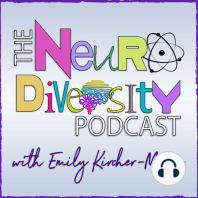33 min listen

Social & Emotional Curriculum: Learning With Heart
Social & Emotional Curriculum: Learning With Heart
ratings:
Length:
30 minutes
Released:
Jun 4, 2021
Format:
Podcast episode
Description
What kind of specific social and emotional support do high-ability kids need? How can we help high-ability students deal with perfectionism? How can teachers in gifted programs thrive when they are forced to play the role of counselor? How can we help neurodivergent kids cope with potential asynchrony between their emotional and intellectual abilities? We talk about all of these topics and more with Mark Hess, a Gifted Programs Specialist, on episode 86. ABOUT THE GUEST - Mark Hess is a board member for SENG, editor or the SENG Library, and President-Elect of the Colorado Association for Gifted Students. He is the Gifted Programs Specialist in a large, urban school district in Colorado Springs. Mark’s articles often appear in the NAGC blog, and he is an advisory committee member for NAGC’s Teaching for High Potential. His 3rd, 4th, and 5th grade Gifted Social-Emotional Curriculum books are available from Prufrock Press. As Portable Gifted and Talented, Mark has shared over 24,000 free resources for teachers and parents of gifted children. You can support the podcast and receive subscriber-only benefits at www.patreon.com/neurodiversity. The Neurodiversity Podcast is available on Facebook and Instagram, and on Twitter @NeurodiversePod. For more information go to www.NeurodiversityPodcast.com
Released:
Jun 4, 2021
Format:
Podcast episode
Titles in the series (100)
Potholes On Memory Lane: Gifted Kids and Trauma | Gifted | Parenting | Violence: Signs of trauma can easily be dismissed as symptoms of something else entirely. On episode 19, Emily welcomes author and trauma expert Heather Forbes to talk about how to identify the signs of trauma, and ultimately how to control and minimize its... by Neurodiversity Podcast